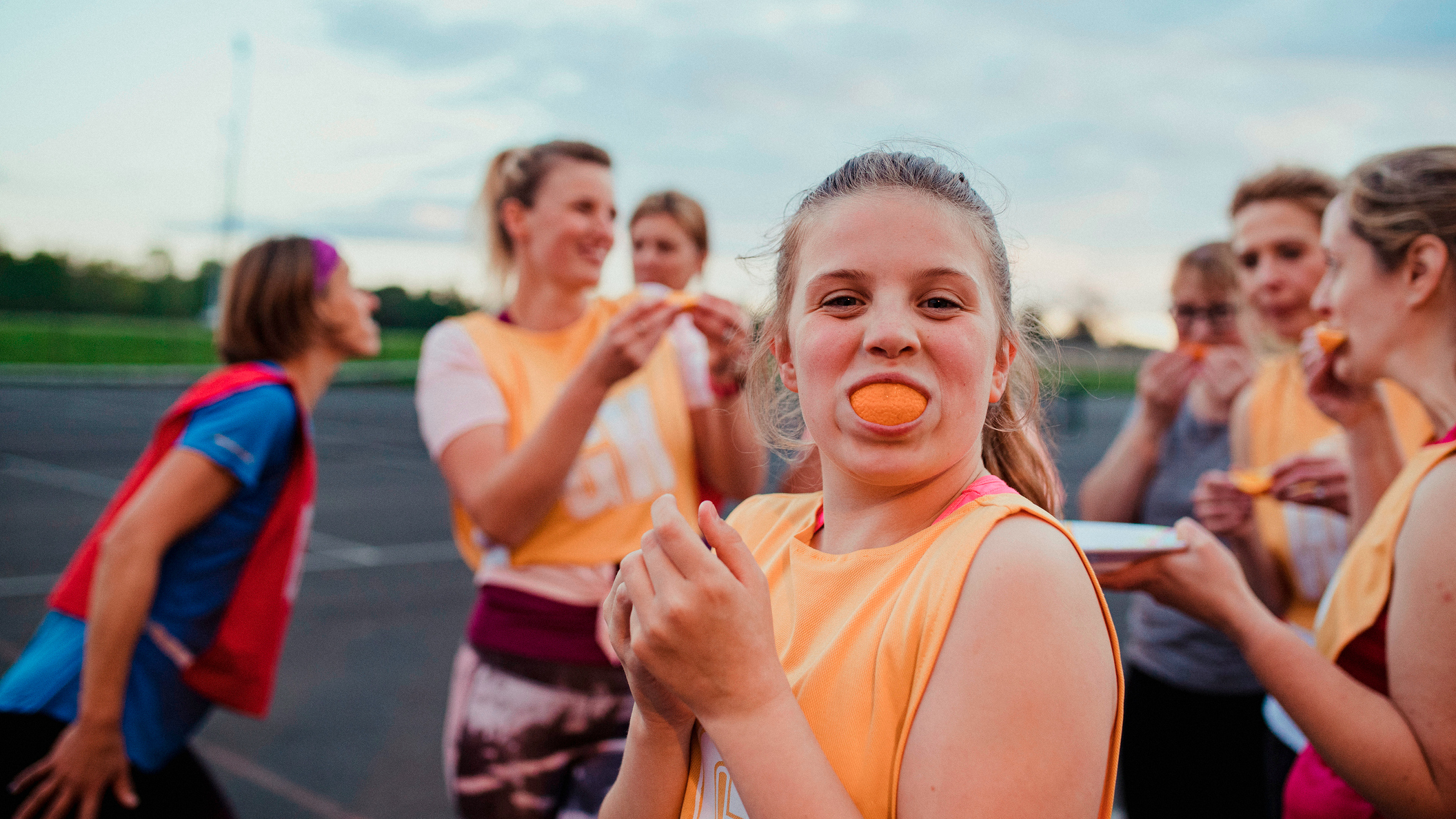This Sports Nutritionist Wants Female Athletes To Know That Carbs Are Your Best Friend
I asked the author of a new book on sports nutrition for female athletes in team sport what women need to know

We all know that nutrition plays an important role in sports performance. Fueling properly allows us to perform at our absolute best as well helping us to recover effectively.
But sports nutrition isn’t a “one size fits all” discipline, and that’s especially true when comparing the nutritional needs of men and women. The nutritional requirements of women can differ significantly from those of men owing to differences in body composition, hormonal fluctuations and metabolism.
I spoke to Laura Kealy, sport and exercise nutritionist and author of Eat To Win: Nutrition For Peak Performance In Female Team Sport Athletes to find out how sports nutrition differs for women and how to optimize it.
What are the key nutrients female athletes require?
“Iron is the big one,” Kealy says. “With our menstrual cycle we have additional iron losses.” According to the NHS, iron deficiencies can lead to anemia, which can cause tiredness and shortness of breath among other symptoms, so it’s vital to stay on top of it.
Calcium is also important for female athletes, as well as vitamin D (although this one is important for all athletes). Kealy ideally recommends getting these through a nutrient-rich diet, which will cover all the nutrients your body needs.
For certain nutrients you may need to go down the supplement route. She suggests supplements of iron and folic acid—something that’s recommended for pregnant women but can also be helpful for athletes.
Kealy advises getting an annual blood test to check your iron and vitamin D levels, as well as B12.
Should you change how you fuel to match your menstrual cycle?
According to Kealy, there is currently no data to suggest that you need to change your diet or nutrition strategy during your period.
“This is something that I’m staunch on,” Kealy says. “I explain to female athletes how our hormones affect us in the different phases and what might happen for you. However, we work on an individual basis.”
Over the course of their cycle women may experience a lull in energy levels, changes in mood and sleep, cravings and so on, but again Kealy points out that this is an individual experience.
“I work with women who actually don’t feel any different throughout the month if they’re on a natural cycle, and then other female athletes who suffer from cravings, stomach upset, cramping. With those individuals, I’ll create strategies for them.”
Do you have any other nutritional tips for female athletes?
“Carbohydrates are your best friend,” says Kealy. “I think we have a bit of a carbohydrate fear. I have young athletes coming to me, dealing with exposure to social media where they’re looking at people creating very low-carb, low-calorie meals. Sure, they’re nutrient-dense, but when you’re an athlete and you’re fueling, you need a high calorie intake to meet your energy needs.” It’s a message we’ve heard before from speaking to author Ali Nolan about marathon training for women.
Kealy says it’s also important to make sure you’re consuming enough protein and recommends trying to get your protein from natural, whole food sources as much as possible. She is an advocate of drinking milk, noting its benefits in speeding up an athlete’s recovery process.
“We [society] went through an anti-dairy movement,” she says. “Obviously if you’re lactose intolerant or you’ve got a milk allergy, absolutely you should steer towards a milk alternative. However, if you can get 500ml of milk in after a really heavy training session, you’re going to cover a lot of your recovery with that.”
Studies have shown that the protein in milk can help repair and build muscle tissue by increasing the process of muscle protein synthesis, and it includes electrolytes such as potassium and sodium.
Sign up for workout ideas, training advice, reviews of the latest gear and more.
Laura Kealy is a health and performance nutritionist who has worked with female team sport athletes for more than 10 years. She holds a master’s in Human Nutrition and a postgraduate degree in Sport and Exercise Nutrition. Kealy is also registered with the Association of Nutrition (ANutr) and the Sports and Exercise Nutrition Register (SENr). Since founding Bridge Nutrition in 2018, she has supported hundreds of female athletes, both amateur and elite, across a range of sports.

Lois Mackenzie is a fitness writer working on news, features, reviews and buying guides for Coach and sister site Fit&Well. Lois is a hill walker and avid runner who has just completed her first marathon. Before joining Coach, Lois worked as a senior SEO reporter at Newsquest Media Group.
